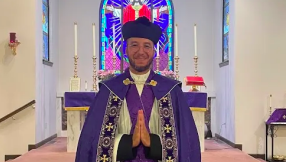
The Department for Education has published its final guidance on controversial Relationships and Sex Education ahead of its mandatory roll out in schools across England from September 2020.
Relationships education will be required in primary schools, while secondary school children will receive relationships and sex education. Under the changes, a new subject of health education will also be compulsory in all state-funded schools.
The guidance says that schools must take the "religious background of all pupils into account" to ensure that the content of RSE lessons is "appropriately handled" and that they are complaint with equality laws recognising religion as a protected characteristic.
The RSE lessons have alarmed many religious parents not only because they cover LGBT relationships, but because the Government has made changes to limit parental opt out rights.
Parents will be able to withdraw their children from sex education as part of RSE up to three terms before their 16th birthday, but they have no right to opt them out of relationship classes at any age.
In new guidance published this week, the Government said it recognised that there was a range of opinions on RSE but said that parents should be consulted and that the "starting principle" in teaching the curriculum "must be that the applicable law should be taught in a factual way so that pupils are clear on their rights and responsibilities as citizens".
It added that the teaching should be "sensitive" and "age-appropriate", and said schools needed to show understanding towards the faith beliefs of their religious students.
"A good understanding of pupils' faith backgrounds and positive relationships between the school and local faith communities help to create a constructive context for the teaching of these subjects," it reads.
"In all schools, when teaching these subjects, the religious background of all pupils must be taken into account when planning teaching, so that the topics that are included in the core content in this guidance are appropriately handled.
"Schools must ensure they comply with the relevant provisions of the Equality Act 2010, under which religion or belief are amongst the protected characteristics."
All schools, but especially those with a religious character, are permitted to teach about faith perspectives on the content of RSE lessons.
READ MORE: Parental concerns over sex education should not be 'brushed aside', says bishop
"In particular, schools with a religious character may teach the distinctive faith perspective on relationships, and balanced debate may take place about issues that are seen as contentious," the guidance says.
"For example, 13 the school may wish to reflect on faith teachings about certain topics as well as how their faith institutions may support people in matters of relationships and sex. 22.
"In all schools, teaching should reflect the law (including the Equality Act 2010) as it applies to relationships, so that young people clearly understand what the law allows and does not allow, and the wider legal implications of decisions they may make."
While religious parents may welcome the recommendation that their faith beliefs are to be taken into account, the Government's insistence that schools teach LGBT content is likely to be a cause of ongoing concern.
The guidance reads: "Schools should ensure that all of their teaching is sensitive and age appropriate in approach and content.
"At the point at which schools consider it appropriate to teach their pupils about LGBT, they should ensure that this content is fully integrated into their programmes of study for this area of the curriculum rather than delivered as a standalone unit or lesson.
"Schools are free to determine how they do this, and we expect all pupils to have been taught LGBT content at a timely point as part of this area of the curriculum."
More dialogue needed to resolve clash over religious and LGBT rights in schools, says Ofsted chief
Christian school worker dismissed after sharing concerns about sex education on Facebook













